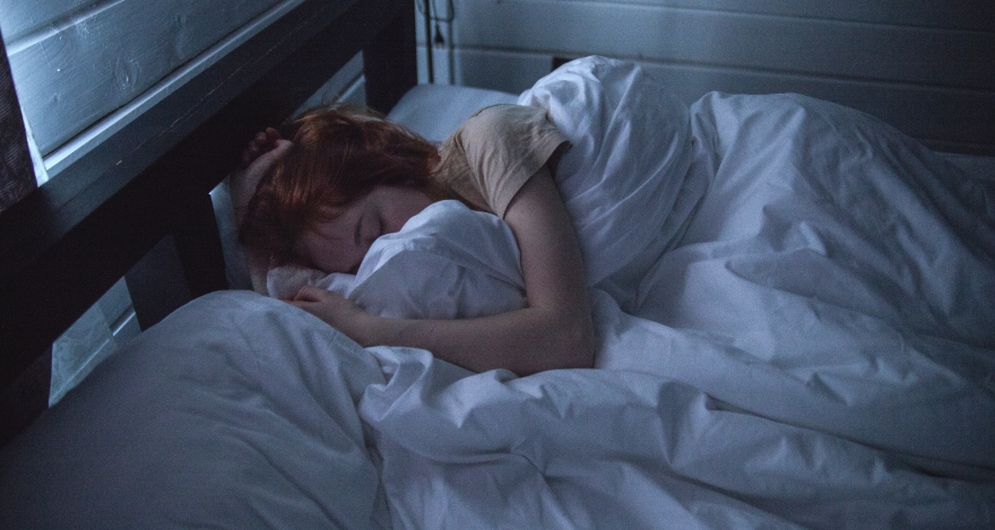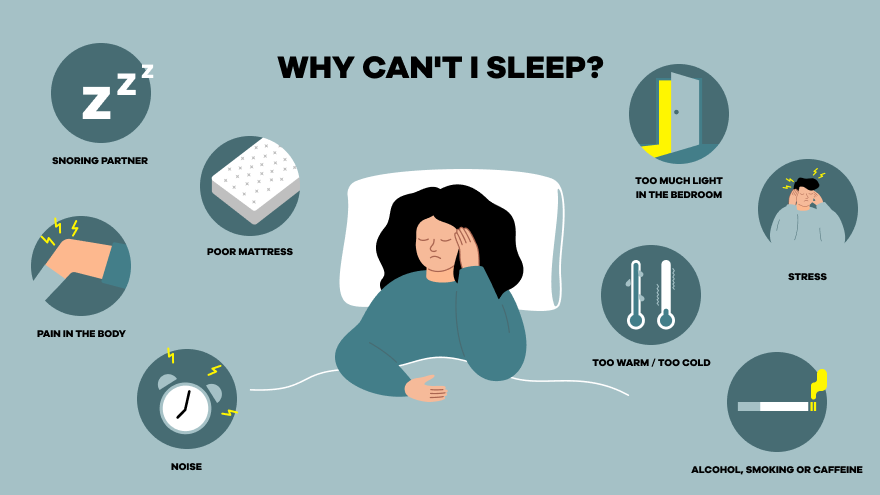A guide to sleeping well

It’s widely known that we should be spending about a third of each day in the land of nod. Those 7-8 hours are essential for our physical and mental wellbeing, although many of us have difficulties actually getting them. So, what can you do to improve your sleep? And how can you get into a sleeping pattern that Sleeping Beauty herself would envy?
In this article, we’ll discuss why we need sleep and the most common things that stop us getting some much needed shut eye.
Why is sleep so important?
A long night of tossing and turning affects us in lots of different ways. We often wake up tired and irritable and find it difficult to focus on our responsibilities throughout the day. In 2017, the Harvard Medical School Division of Sleep Medicine published a study that highlighted what they called ‘the three pillars of good health’. They are:
Sleep
Nutrition
Exercise
When one of these pillars falls away, the others will suffer. If you don’t sleep enough, for example, you’ll have less energy to exercise. Sleep, nutrition and exercise are inextricably linked.
A night’s sleep consists of several cycles. First, your alertness drops and you fall into a light sleep. Then, you enter deep sleep and finally REM sleep. In this last phase, you often dream. This pattern is called a sleep cycle. One sleep cycle lasts about 1.5 hours on average. You go through about five cycles per night.
How long should I sleep?
On average, most people need between 7 and 8 hours of sleep per night. Matthew Walker, professor of Neuroscience and Psychology at the University of California and director of the Center for Human Sleep Science, reveals in a podcast with Joe Rogan that sleeping an average of 6 hours or less isn’t ideal for anyone. He says: “The number of people who can sleep 6 hours or less and show no impairment as a result, rounded to a number and expressed as a percentage of the population, is zero.”
Why do we sleep in the first place?
So, sleep is essential for good health. But why do we actually sleep? According to the National Institute of Neurological Disorders and Stroke, sleep affects almost every type of tissue and system in the body — from the brain, heart and lungs to metabolism, immune function, mood and resistance to disease. In addition, several studies show that a chronic lack of sleep increases the risk of conditions such as high blood pressure, cardiovascular disease, diabetes and depression.
We can divide the benefits of a good night’s sleep into physical and mental.
The physical benefits of sleep
-
A good night’s sleep is important if you exercise a lot as it helps muscles and tissues repair.
-
During the night, your hormones have time to reset.
-
Sleeping ensures that the body gets proper rest.
-
If you don’t sleep well for a period of time, your immune functions are affected, making you more likely to get sick.
The mental benefits of sleep
-
We’re more alert, energetic and cheerful after sufficient sleep.
-
Sleep allows us to learn and recall memories more efficiently.
-
We make better decisions after sleeping well. This is partly because we are more emotionally stable. So, allowing some time to ‘sleep on it’ isn’t such a bad idea at all.
Do you sleep badly? Above, we briefly mentioned the long-term consequences, but in the short term, a bad night’s sleep can also cause problems. For instance, sleep deprivation prevents you from doing your job properly. In the same podcast, Matthew Walker reveals that more accidents are caused by people getting into cars when they are sleepy than when driving under the influence of alcohol and drugs. According to him, 20 hours of sleep deprivation is equivalent to the effect of being drunk, both physically and mentally.
Not being able to sleep: what causes it?
It’s often a combination of several factors that keep you lying there staring at the ceiling with your eyes wide open. Think, for example, of physical complaints, such as back pain or inflammation. Tensions, worries or psychological issues such as anxiety and depression can also cause sleepless nights.
External influences can also affect your sleep. Does your partner snore? Did you have a few drinks that night? Maybe your mattress has seen better days? Other influences include using your phone or laptop late at night and drinking caffeine before bed. These not only affect how much sleep you get but the quality of your sleep, too.

What do you need for a good night’s sleep?
Unfortunately, there’s no one-size-fits-all solution to sleep problems. What you can do, however, is establish a healthy evening routine. The following tips can help:
Use a good bed
Nobody sleeps well on the sofa, on a half-full air mattress or on the floor. A bed that’s comfortable for you is essential, and the mattress you use should match your preferences.
Don’t go to bed hungry (or too full)
If you’re lying in bed with a growling stomach or feeling stuffed, you’re not going to get the best night’s sleep. Try to eat at least three hours before you go to bed. If you’re a little hungry when bedtime rolls around, go for a light snack or protein shake. Our Whey Perfection or Micellar Casein Perfection are ideal as they help support muscle recovery overnight.
Find the right temperature
A bedroom that’s too hot or too cold is not great for your sleep. A temperature of 18 degrees Celsius is considered the perfect bedroom temperature.
Stick to your routine.
You’ll hear almost every sleep expert say it: regularity is the secret behind a good night’s sleep. Try to go to bed around the same time every night and wake up around the same time in the morning. Yes, even on weekends.
Control your breathing
It’s no secret that stress and anxiety are factors that keep us awake at night. Focusing on deep, controlled breaths can help release stress and put anxiety aside. You can even try 10-15 minutes of guided meditation before sleeping.
3 myths about sleep
There are lots of tips, tricks and hacks floating around online. Some may work for one person and not at all for another. Others are simply not true, like the following:
You can ‘catch up’ on sleep
We’ve all tried to ‘catch up’ on a couple of hours of sleep, especially after a long week at work or partying a little too hard. Although, according to many sleep experts, it’s not actually possible. The best thing you can do is resume your normal sleep rhythm as soon as you can.
Yawning means you’re tired
Again, not true. The act of yawning has puzzled researchers for years. We know we sometimes yawn when we’re tired but also when we’re cold or bored. Yawning is also contagious (try watching this video without doing it yourself). What exactly causes it? No one quite knows for sure.
The ‘night cap’
You might feel sleepy after a glass of whiskey or wine before bed, but alcohol actually disrupts your rhythm, causing you sleep less deeply and wake up throughout the night. For more information about the effects of alcohol on your sleep, check out our article: how to enjoy alcohol while staying fit and healthy.
Do you fall asleep quickly in the evening? Or would you like to change a few things about your sleep pattern? Be sure to follow @bodyandfit_official and keep an eye on our blog for more tips on wellness, nutrition and health. If you have further questions, don’t hesitate to contact our customer service team. We have a dedicated team of Nutrition Experts who will be happy to help you reach your goals.
#FINDYOURFIT




